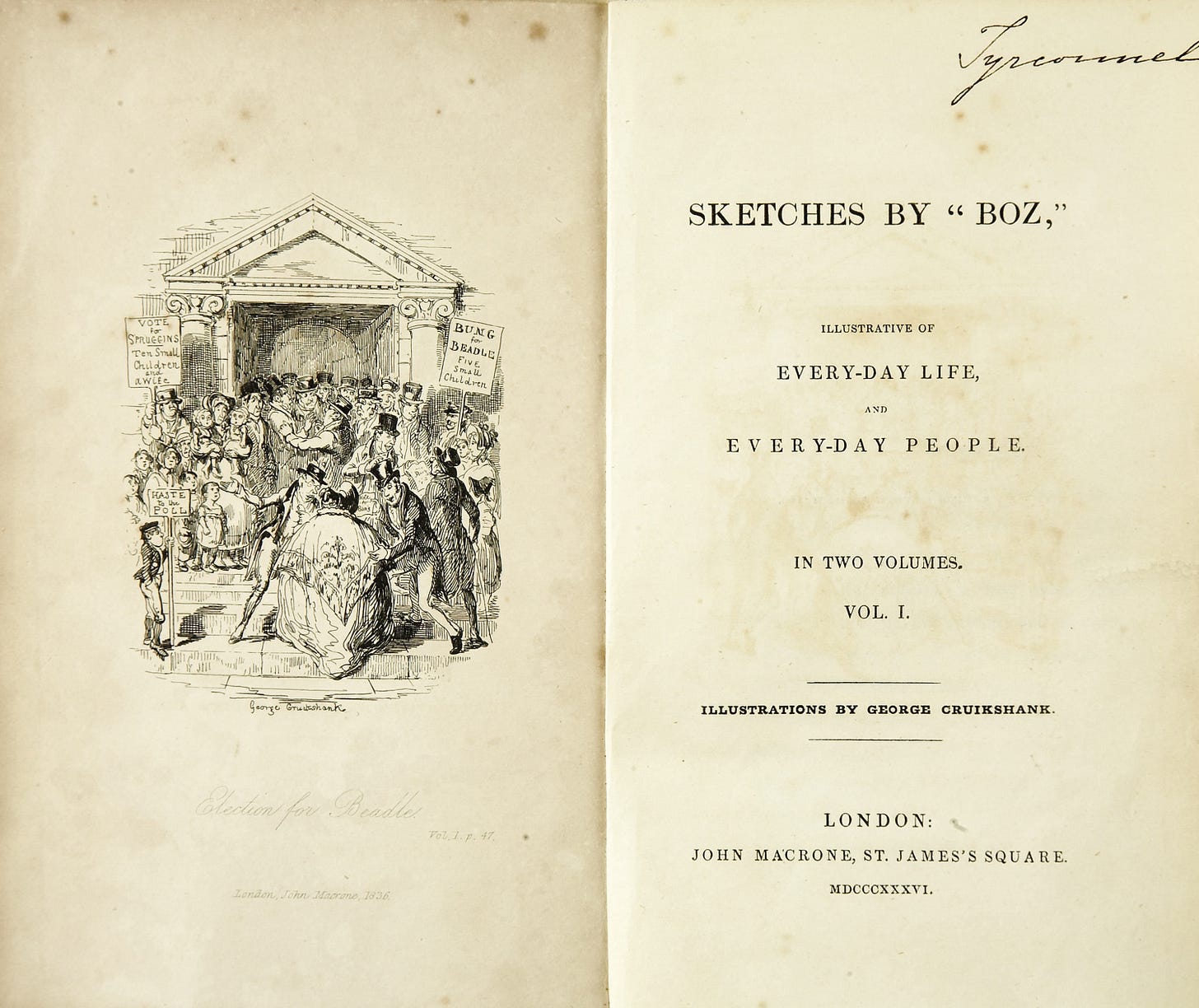poster mindset & the victorian novel
so i have been rereading bleak house & also rewatching the incredible bbc miniseries1 & for the first time it occurred to me to look up dickens’ work history. did you know after all of the dickensian child labor in factories etc, he was a journalist? of course newspaper journalism was different back then, because newspapers were the fastest way to get words in front of a broad audience, so any types of words that want to get in front of people fast, were doing so via newspapers. so at first he was doing stuff that would seem like journalism to us, reporting on civil court cases. but after maybe four years of doing that, his journalism started to consist of stuff that would look less like journalism to us, & more like posting.

so this is how he learned to write. putting out relatively short (not tweet-short, but short) work in front of the public, quickly, over & over, seeing what got a response & what didn’t, trying to be relatable, to make stuff that people would identify with. i can’t be the first to notice & point out that this is basically the opposite of a writing workshop. totally different incentives.
this sort of grimy, public-facing process is what shaped his mind to be able to write immortal novels.2 & of course he was writing the novels the same way—episode by episode, seeing how the public responded
thackeray had basically the same trajectory. & dostoevsky too, with a twist—first he wrote a novel, which got a ton of attention & praise at the time, but which is not what we would think of as dostoevsky-novel-level good & isn’t read much today. then he wrote a bunch of short stuff (including shorter novels), then obviously got exiled to siberia where he kept sporadic notes that would on his release form the basis for notes from the house of the dead. while he wrote his best novels he was also putting out short fiction, newspaper columns, & for a few years, his own publication where he put out basically every form of short prose.
george eliot too, although her stuff before scenes of clerical life was too serious & learnèd & not really enough fun to be called posting. effortposting
all of which is to say that maybe posting isn’t ruining us. maybe it’s honing us. let me be specific. maybe it’s honing you. because i am scared to write a novel & i would prefer to read yours. i think your novel would be good
i totally devoured both as a teenager but i am embarrassed rereading them now how little i understood what was going on, the structure of the story. to me mrs. jellyby, mr. skimpole, etc were just more or less showing up, just dickens showing off his ability to recognize & caricature “types of guy.” but now i get that everybody who shows up has a different relationship to money, charity, earning a living, & in general to giving & taking……also i’m noticing how often dickens has characters giving & receiving objects. nice thematic objects too, lots of cups & keys. this is something that never occurs to me when i’m writing a story which is especially embarrassing bc im a taurus & supposed to be materialistic
i cringed writing that but it’s true!


Definitely plenty of people advocate for tight feedback loops being a big key to skill improvement.
Also Doyle published Sherlock Holmes chapter by chapter (/short story). (And then he killed Holmes because he was fed up with it all; and then audience backlash made him bring Holmes back lmao. Stuff of legends!)
Oooh I read my first Dickens novels last year (Great Expectations, Hard Times, A Christmas Carol) and I love him now. I didn't even know about his own child labour experience, but that makes a lot of sense. I also appreciate the idea that all this posting hasn't been a waste of time for those of us who potentially want to write novels. I think the episodic/serialized novel idea you mentioned here and I've seen you tweet about is a really exciting idea. Can we get everyone doing this? I hope you do itttt